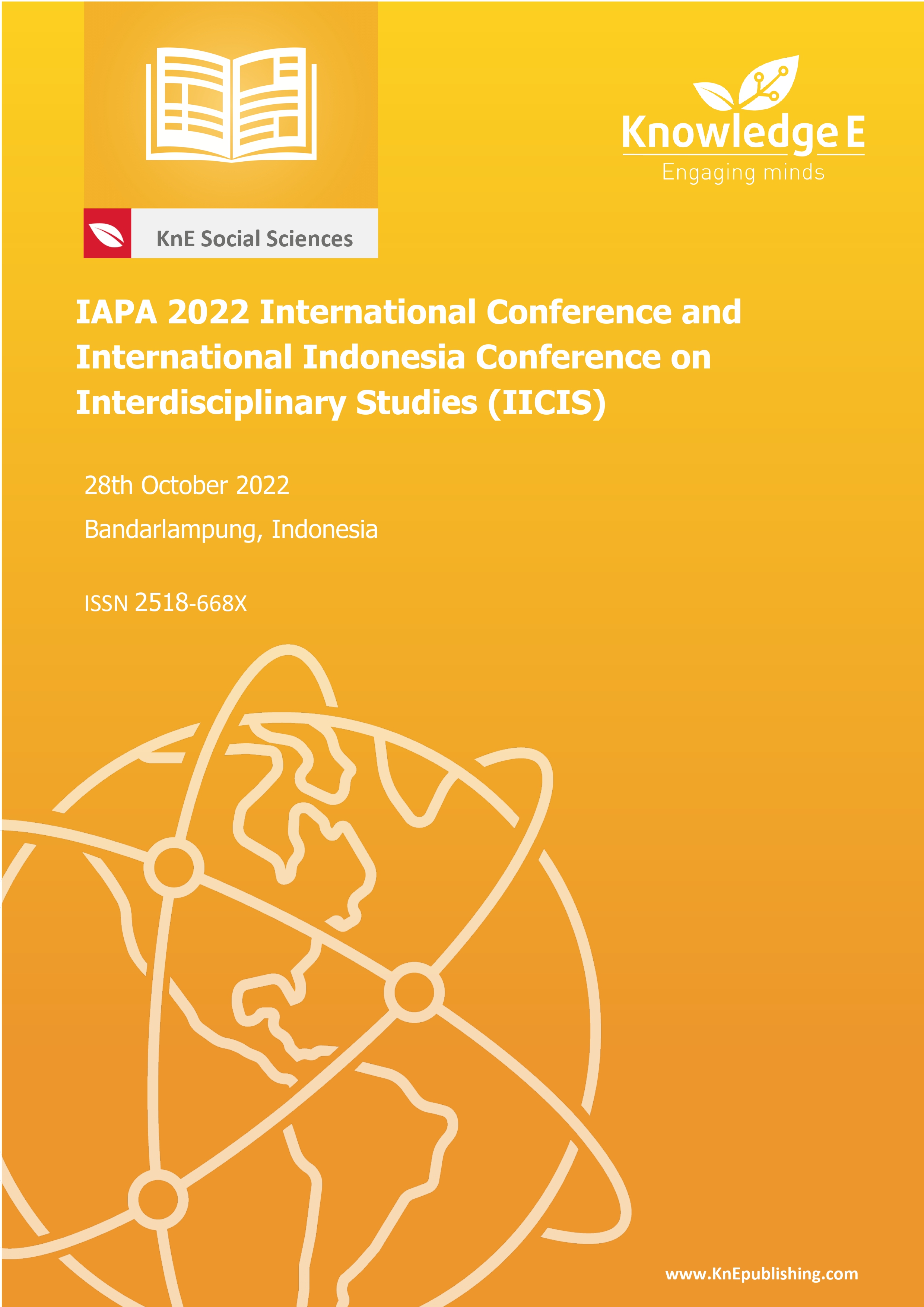Public Trust Analysis of Vaccination Covid-19 Policy in Indonesia
DOI:
https://doi.org/10.18502/kss.v8i5.12991Abstract
The Covid-19 vaccination program in Indonesia had been started since early 2021. Effectiveness, side effects, and the level of public awareness are still a problem in achieving the predetermined Covid-19 vaccination target. the study aimed to describe the level of public confidence in the effectiveness of the Covid-19 vaccine. The vaccine is an effective intervention that can reduce the high burden of disease globally. However, public skepticism about vaccines is a pressing issue for public health authorities. With the availability of the Covid-19 vaccine, there is little information available about public acceptance and attitudes toward the Covid-19 vaccine in Indonesia. The method used in this research is a Literature Review study. The results of this study are low-public trust or low trust in the vaccination policy itself, especially in the early days of the presence of vaccines in Indonesia. This low-public trust is much influenced by the distribution of information on social media which gives rise to a narrative of debate. This situation also has an impact on the pattern of acceptance, cooperative interest, and public participation in government policies in the vaccination program, in increasing public trust, of course, there is a role for the media as well to provide education and information on all matters related to the vaccination program. The government’s efforts to cooperate with the Indonesian Ulema Council in supervising halal vaccine products seem to have an influential intensity, this is because Indonesia is a country with the majority of the population converts to Islam, so with the MUI fatwa stating that vaccines used for the COVID-19 pandemic in Indonesia are considered and monitored for purity. But as time goes on and the government continues to make efforts, the public’s confidence in the COVID-19 vaccination is getting better, and the success of preventing COVID-19 is going well.
Keywords: public trust, vaccination, Covid-19, policy
References
[2] Wilder-Smith A, Freedman DO. Isolation, quarantine, social distancing and community containment: pivotal role for old-style public health measures in the novel coronavirus (2019-nCoV) outbreak. J Travel Med. 2020 Mar;27(2):taaahttps://doi.org/10.1093/jtm/taaa020.
[3] Ramadhan RS, Purba N, Akhyar A. “ANALISIS YURIDIS TERHADAP PENOLAKAN VAKSINASI COVID-19 DITINJAU DARI HUKUM PIDANA (Suatu Analisis Terhadap Peraturan Daerah DKI Jakarta …,” J Ilm. 2021;32. [Online]. Available: http://ejournal.steitholabulilmi.ac.id/index.php/metadata/article/view/80
[4] Savulescu J. Good reasons to vaccinate: mandatory or payment for risk? J Med Ethics. 2021 Feb;47(2):78–85.
[5] Nian G, Peng B, Sun DJ, Ma W, Peng B, Huang T. Impact of COVID-19 on urban mobility during post-epidemic period in megacities: from the perspectives of taxi travel and social vitality. Sustainability (Basel). 2020;12(19):7954.
[6] Bohman H, Ryan J, Stjernborg V, Nilsson D. A study of changes in everyday mobility during the Covid-19 pandemic: as perceived by people living in Malmö, Sweden. Transp Policy. 2021 Jun;106:109–119.
[7] Moraci F, Errigo MF, Fazia C, Campisi T, Castelli F. Cities under pressure: strategies and tools to face climate change and pandemic. Sustainability (Basel). 2020;12(18):7743.
[8] Chanley VA, Rudolph TJ, Rahn WM. The origins and consequences of public trust in government: a time series analysis. Public Opin Q. 2000;64(3):239–256.
[9] Rian Andhika L. “Meningkatkan Kepercayaan Publik Terhadap Pemerintah Melalui Redesain Proses Kebijakan.” JIP ( Jurnal Ilmu Pemerintahan) Kaji Ilmu Pemerintah dan Polit Drh. 2018;3(1):24–42.
[10] Grimmelikhuijsen S, Klijn A. The effects of judicial transparency on public trust: evidence from a field experiment. Public Adm. 2015;93(4):995–1011.
[11] Sargeant A, Lee S. Improving public trust in the voluntary sector: An empirical analysis. Int J Nonprofit Volunt Sect Mark. 2002;7(1):68–83.
[12] Fu Y, Ma W, Wu J. Fostering Voluntary Compliance in the COVID-19 Pandemic: An Analytical Framework of Information Disclosure. Am Rev Public Adm. 2020;50(6– 7):685–691.
[13] Sharma GD, Talan G, Jain M. Policy response to the economic challenge from COVID-19 in India: A qualitative enquiry. J Public Aff. 2020;20(4): https://doi.org/10.1002/pa.2206.
[14] Nicolas DG. “ANALISIS ANGGAPAN REKAYASA DI BALIK PANDEMI COVID-19, VAKSIN COVID-19 BERKAITAN DENGAN MICROCHIP 666 DAN ANTIKRISTUS.” J Revolusi Indones. 2021, [Online]. Available: http://fenery.org/index.php/jri/article/view/82
[15] De Walle V. Public trust in Government in Japan and South Korea: Does the rise of critical citizens matter? Public Adm Rev. 2010;70(5):801–810.
[16] Gostin LO. “Science, leadership, and public trust in the Covid-19 Pandemic.” https://doi.org/10.1599/mqop.2020.0928.
[17] Yang C, Northcott D. How can the public trust charities? The role of performance accountability reporting. Account Finance. 2019;59(3):1687–1713.
[18] Malone MF, Dammert L. The police and the public: policing practices and public trust in Latin America Policing Soc. 2021;31(4):418–433.
[19] Ramkissoon H. Social bonding and public trust/distrust in covid-19 vaccines. Sustainability (Basel). 2021;13(18):1–5.
[20] Moleong and J. Lexy. Metodelogi Penelitian. Bandung: Remaja Rosdakarya; 2004.
[21] van der Cruijsen C, de Haan J, Jonker N. Has the COVID-19 pandemic affected public trust? Evidence for the US and the Netherlands. J Econ Behav Organ. 2022 Aug;200:1010–1024.
[22] Gopez JM. Building public trust in COVID-19 vaccines through the Catholic Church in the Philippines. J Public Health (Oxf). 2021 Jun;43(2):e330–e331.
[23] Sa MJ, Serpa S. The covid-19 pandemic as an opportunity to foster the sustainable development of teaching in higher education. Sustainability (Basel). 2020;12(20):1– 16.

